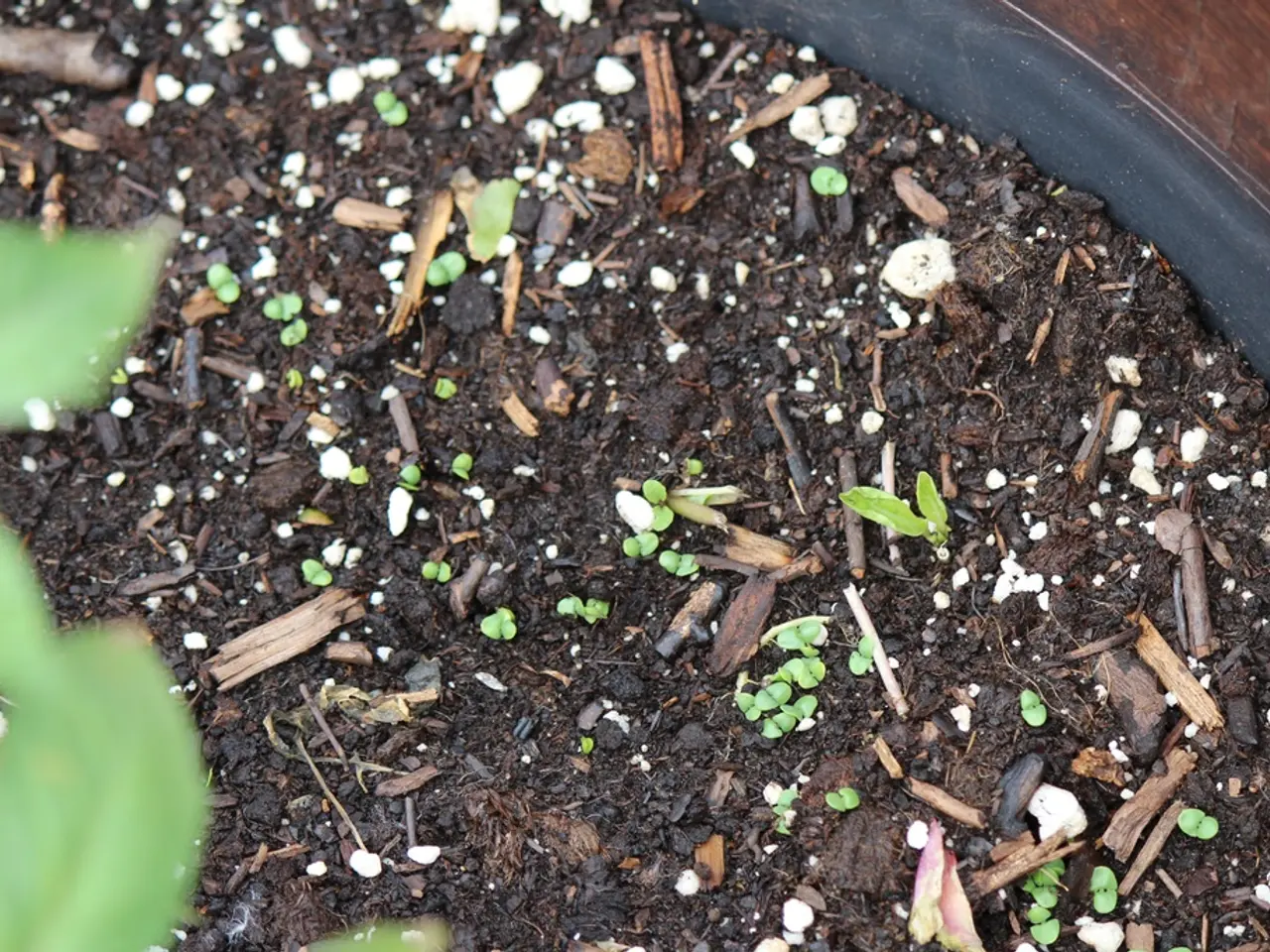Preparing the Ground for Plant Life: Effortless Methods for Soil Cultivation Prior to Sowing
Transforming Hard Clay Soil: A Comprehensive Guide
When dealing with hard clay-based soil, it's essential to employ a combination of physical, biological, and organic methods to soften the soil and enhance garden productivity. Here's a step-by-step guide on how to achieve this.
- Aeration and Mechanical Loosening
Use tools like a rotary tiller, garden fork, or core aerator to break up compacted clay soil and improve aeration before planting. These tools turn and loosen soil, mixing in organic amendments and promoting air and water movement. Avoid working clay soil when it's too wet or bone dry to prevent smearing and impermeability or the creation of dust that compacts.
- Adding Organic Matter
Incorporate compost, well-rotted manure, or sphagnum peat moss into the top 6–12 inches of soil to lighten clay texture, increase aeration, moisture retention, and microbial activity. Peat moss, in particular, is valued for improving structure, moisture retention, and creating a looser, more workable soil.
- Cover Crops and Green Manures
Plant cover crops like crimson clover, winter rye, or buckwheat to send roots deep into clay soil. Their roots create natural drainage channels, and when decomposed, they add organic matter that helps break down clay particles and improve soil structure. Turn cover crops under before they set seed for best results.
- Surface Mulching and the Clay Crust Trick
Use a “clay crust trick” or deep mulching to gradually build a humus horizon from above, capturing organic residues and promoting natural soil fermentation and microbe revival. This can soften hard clay crusts, improving moisture retention and soil life without frequent digging or synthetic fertilization. Materials like cardboard, mulch, or fermented organic layers can support this process, especially in regenerative or no-till gardening.
- Leveraging Certain Weeds
Retain weeds with long taproots (like dandelions) that can naturally penetrate and loosen compacted layers, acting as underground soil aerators. Remove their seed heads to control spreading.
Tools and Materials at a Glance
| Category | Examples | Purpose | |-----------------------|------------------------------------|--------------------------------------------------| | Mechanical Tools | Rotary tiller, garden fork, core aerator | Loosen and aerate compacted clay soil | | Organic Amendments | Compost, manure, sphagnum peat moss | Lighten clay texture, improve fertility | | Cover Crops | Crimson clover, winter rye, buckwheat | Natural soil aeration, organic matter addition | | Mulching Materials | Cardboard, straw, organic mulches | Promote microbial activity, prevent crusting | | Natural Allies | Dandelions (taproot weeds) | Break compacted soil naturally |
By following these steps consistently over time, you can transform hard clay soil into a productive, fertile, and well-draining medium suitable for healthy plant growth.
incorporating a diversity of cover crops and green manures, like crimson clover, winter rye, or buckwheat, can significantly improve soil health in hard clay soil by sending roots deep into the soil to create natural drainage channels and add organic matter, thus breaking down clay particles and enhancing soil structure.
Gardening lifestyle and home-and-garden practices, such as deep mulching and incorporating organic matter like compost or well-rotted manure, can help soften hard clay crusts, improve moisture retention, and stimulate microbial activity, thereby transforming the soil into a fertile, well-draining medium suitable for healthy plant growth.




